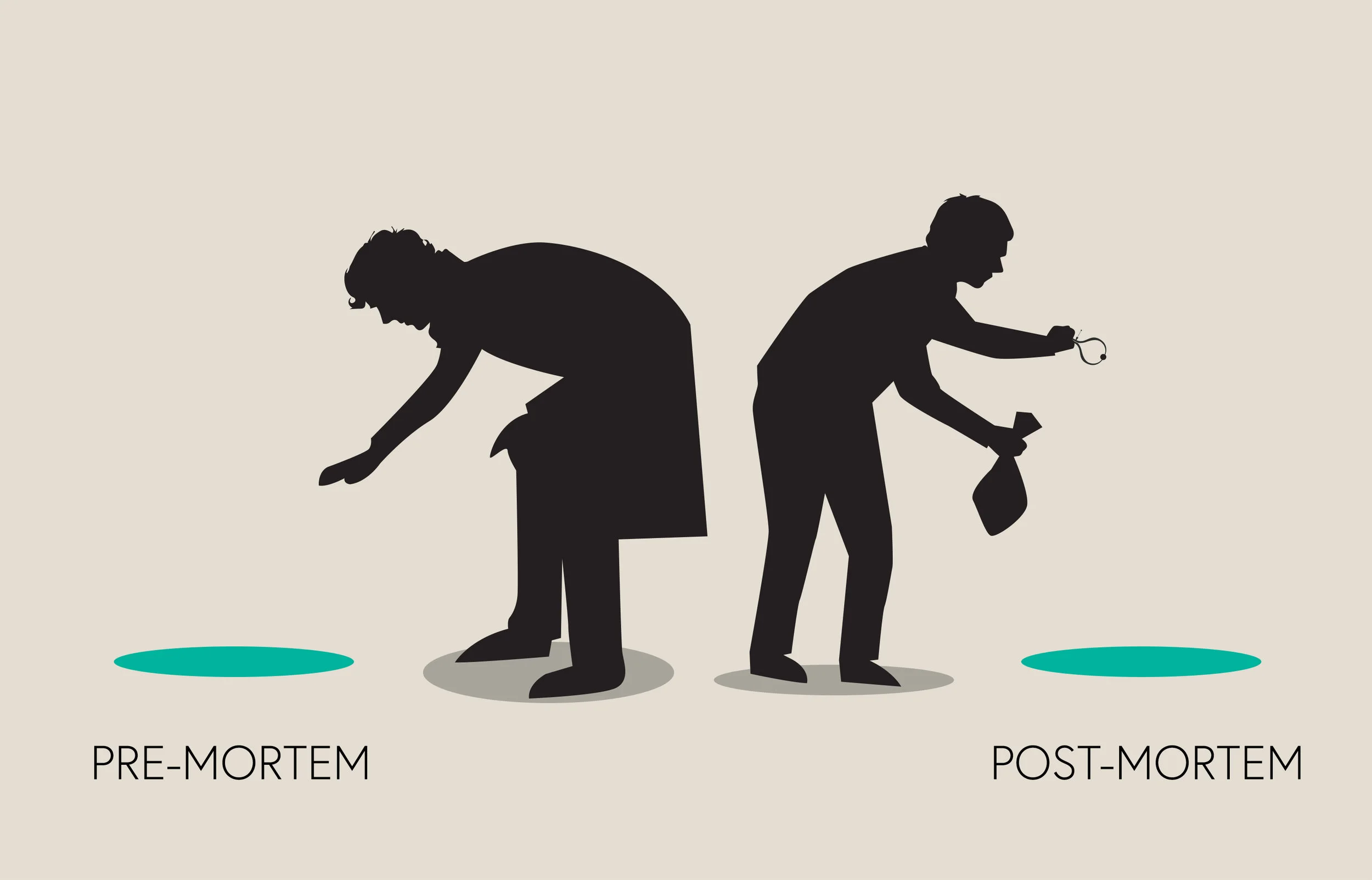The value of a 'pre-mortem' when problem solving
A good problem solver recognises that the implementation of a remedy is not the final step in the problem solving process.
In fact, the last stage should be a review of both the process of how you went about your chosen solution and a measure of its impact (i.e. how successful was it in addressing the issue).
This is often referred to as a ‘post-mortem’ because it occurs after the event.
However, there is the less frequently practised and less well known technique called a ‘pre-mortem' devised by the psychologist Gary Klein.
This takes place before you have implemented your chosen solution.
Rather than ask why something failed or wasn’t as effective as desired, a 'pre-mortem' imagines a bleak moment in the future and asks “Why did it fail?”
Problem solving often occurs under pressured circumstances and the temptation exists to rush the implementation process to 'get it done.' This exercise forces you to pause and reflect on your chosen antidote.
Try to encourage yourself and your team to write down as many reasons as possible as to why the solution you’ve chosen wouldn’t have worked.
Doing so might uncover an unexpected flaw or it may encourage you to further refine your idea and make it more effective.
Want to learn more about techniques like these and how to become an expert problem solver? Join our ‘Think Like Sherlock’ course co-created with a Scotland Yard detective with 30 years of problem solving experience.






